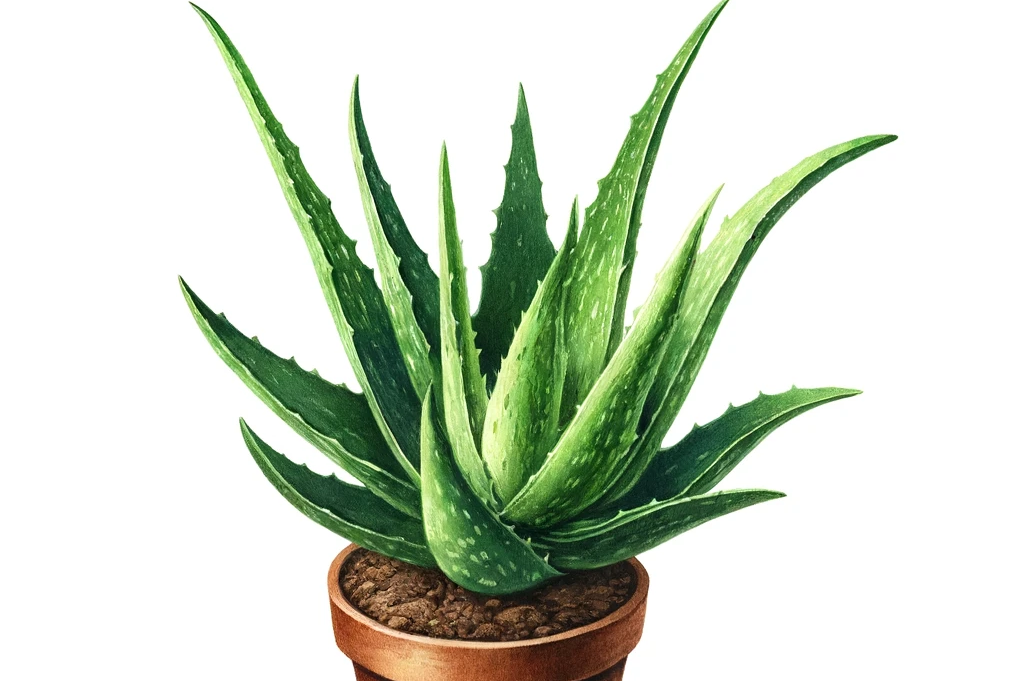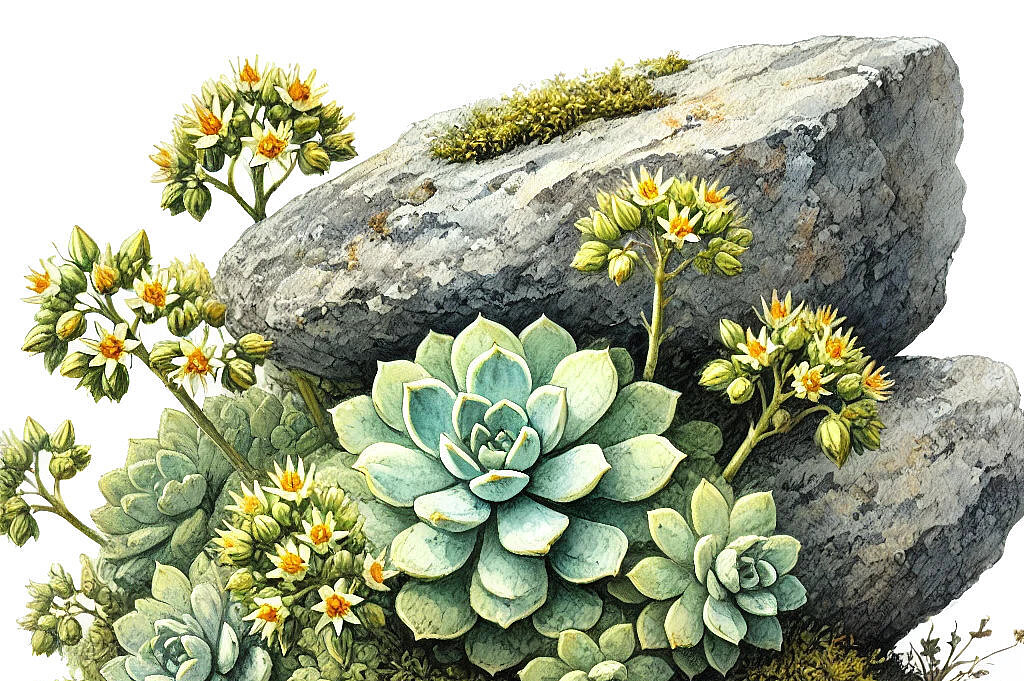House roots

What are houseleeks?
Houseleeks belong to the family Crassulaceae and include various species of Sempervivum that are characterized by their rosette-shaped leaves and their ability to survive in extreme conditions. These plants store water in their thick leaves, which enables them to survive dry periods. Houseleeks are easy to care for and are traditionally valued for their suspected healing properties, including their use for skin irritations and minor burns.
Potential benefits of houseleeks for dogs
Natural remedies
House roots contain several compounds that have anti-inflammatory and antimicrobial properties. When applied topically, these can help to heal minor skin injuries, scratches or bites on dogs. So the plant could provide a natural first aid measure that comes straight from your garden.
Hydration
In hot summer months, the water-retaining leaves of houseleeks can provide an additional source of hydration. Although water should always be the primary source of hydration, a small piece of a houseleek leaf could provide a welcome refreshment.
Nutrient source
Although the specific nutrient profiles of house roots need to be further researched, they could be a source of vitamins and minerals to supplement your dog's general diet.
Possible disadvantages and precautions
Digestive problems
As with any supplement to your dog's diet, caution is advised. Some dogs may be sensitive to the introduction of new plants into their diet, which can lead to gastrointestinal distress. Start with small amounts and observe how your dog reacts.
Toxicity
While house roots are generally considered safe, it is important to make sure that no parts of the plant are toxic to dogs. There are many types of plants and not all are suitable for consumption by dogs. If in doubt, always consult a vet before feeding your dog anything new.
Overfeeding
Overfeeding house roots or any other supplement can lead to nutritional imbalances. House roots should only make up a small part of your dog's diet and should not form the basis of your dog's diet.
House roots can be an interesting addition to your dog's diet and care, provided they are used responsibly and in moderation. Their potential healing properties can be beneficial when used topically, and their water-retaining leaves could provide an additional source of hydration in the warmer months. As with any change in your dog's diet or care, it's important to start with small amounts and monitor your dog's response.
If you notice any signs of hypersensitivity or poisoning in your dog, you should see your vet immediately. We are not a substitute for a vet, but we try to be as accurate as possible. Every dog reacts differently and we recommend you get a second opinion or consult your vet if in doubt.
Stay healthy and take good care of your four-legged friend!😊
Similar to House roots
Aloe vera is a succulent plant that belongs to the lily family. It has long, thick, fleshy leaves with spines on the edges. A gel or juice containing many valuable ingredients can be extracted from...
Sedum, often known as stonecrop, is a genus of succulents comprising over 600 species. These plants are popular because of their undemanding care, drought tolerance and diverse shapes and colors....
Echeverias belong to the Crassulaceae family and are known for their rosette shape and variety of colors and sizes. Originally from the arid regions of Central and South America, they have...
Graptopetalum is a member of the thick-leaved family and includes various species of succulents characterized by fleshy leaves and often star-shaped flowers. These plants are particularly prized for...



